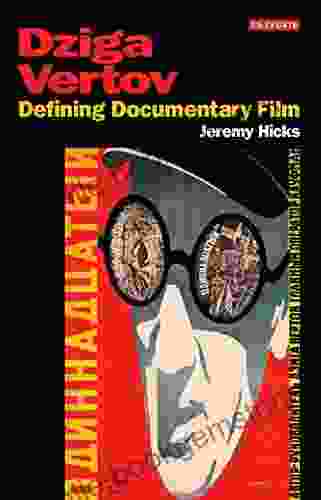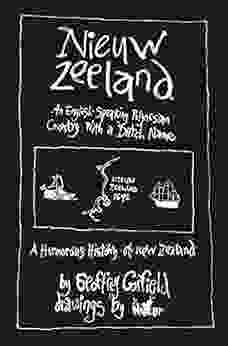Defining Documentary Film Kino: The Russian and Soviet Cinema

Documentary film kino, a genre that originated in Russia and the Soviet Union, is characterized by its focus on real-life events and people. Documentary film kino often explores social, political, and cultural issues, and it has been used as a tool for propaganda, education, and social change.
5 out of 5
| Language | : | English |
| File size | : | 1526 KB |
| Text-to-Speech | : | Enabled |
| Screen Reader | : | Supported |
| Enhanced typesetting | : | Enabled |
| Word Wise | : | Enabled |
| Print length | : | 210 pages |
This article will explore the history, techniques, and impact of documentary film kino. We will examine its role in shaping Russian and Soviet society and its influence on global filmmaking.
History of Documentary Film Kino
The origins of documentary film kino can be traced back to the early 20th century. In 1919, Dziga Vertov, a Russian filmmaker, released his first documentary film, "Kino-Pravda" (Kino-Truth). Vertov's film was a radical departure from the traditional narrative films of the time. It featured real-life footage of everyday events, and it used montage techniques to create a powerful and moving portrait of Soviet society.
Vertov's work inspired a new generation of filmmakers in Russia and the Soviet Union. Sergei Eisenstein, another influential Soviet filmmaker, used documentary film techniques in his epic films "October" (1927) and "Battleship Potemkin" (1925). Eisenstein's films were highly stylized and used dramatic reenactments to create a powerful emotional impact.
During the Stalinist era, documentary film kino was used as a tool for propaganda. Films such as "The Great Fatherland War" (1941-1945) glorified the Soviet Union's victory over Nazi Germany. However, documentary film kino also continued to be used for social commentary and education. Films such as "Man with a Movie Camera" (1929) by Dziga Vertov and "The Plow That Broke the Plains" (1936) by Pare Lorentz explored the social and economic problems of the time.
After the dissolution of the Soviet Union in 1991, documentary film kino continued to be produced in Russia. However, the genre has faced new challenges in the post-Soviet era. Economic instability and the rise of commercial filmmaking have made it difficult for documentary filmmakers to find funding and distribution.
Techniques of Documentary Film Kino
Documentary film kino uses a variety of techniques to create a powerful and moving portrait of reality. These techniques include:
* Observational footage: Documentary film kino often uses observational footage to capture real-life events and people. This footage is often shot without the knowledge or participation of the subjects. * Interviews: Interviews are another important technique used in documentary film kino. Interviews allow filmmakers to get first-hand accounts of events from the people who experienced them. * Montage: Montage is a technique that involves editing together different shots to create a new meaning or effect. Montage is often used in documentary film kino to create a sense of rhythm and to highlight the connections between different events and people. * Narration: Narration is often used in documentary film kino to provide context and to guide the viewer through the film. Narration can be spoken by the filmmaker, by the subjects of the film, or by a third-party narrator.
Impact of Documentary Film Kino
Documentary film kino has had a profound impact on Russian and Soviet society. It has been used to educate, inform, and inspire people. It has also been used to document important historical events and to promote social change.
Documentary film kino has also had a significant influence on global filmmaking. The techniques developed by Soviet filmmakers have been adopted by filmmakers around the world. Documentary film kino has become an important genre for exploring social, political, and cultural issues.
Documentary film kino is a powerful and moving genre that has the ability to change the way we see the world. It is a genre that has been used to educate, inform, and inspire people. It is also a genre that has been used to document important historical events and to promote social change.
Documentary film kino is a vital part of Russian and Soviet culture. It has played a significant role in shaping Russian and Soviet society. It has also had a profound impact on global filmmaking.
References
* [1] Jay Leyda, Kino: A History of the Russian and Soviet Film (Princeton University Press, 1983). * [2] Ian Christie and Richard Taylor, eds., The Film Factory: Russian and Soviet Cinema in Documents, 1896-1939 (Routledge, 1994). * [3] Annette Michelson, Kino: The Russian Avant-Garde and the Early Soviet Cinema (University of California Press, 2005).
5 out of 5
| Language | : | English |
| File size | : | 1526 KB |
| Text-to-Speech | : | Enabled |
| Screen Reader | : | Supported |
| Enhanced typesetting | : | Enabled |
| Word Wise | : | Enabled |
| Print length | : | 210 pages |
Do you want to contribute by writing guest posts on this blog?
Please contact us and send us a resume of previous articles that you have written.
 Best Book
Best Book Page Flip
Page Flip Bookshelf
Bookshelf Literary loom
Literary loom Chapter
Chapter Bookish
Bookish PageTurner
PageTurner Bibliophile
Bibliophile Story
Story Inkwell
Inkwell Bookworm
Bookworm Labyrinth
Labyrinth Plot Twist
Plot Twist Prose
Prose Paperback
Paperback Storyteller
Storyteller Sanctuary
Sanctuary Fiction
Fiction Reading
Reading Chronicle
Chronicle Read
Read Gerald M Kilby
Gerald M Kilby Wendy Hollender
Wendy Hollender Hannes Rall
Hannes Rall John Seed
John Seed Dallas Shaw
Dallas Shaw Orla Kiely
Orla Kiely Octavia E Butler
Octavia E Butler Nichole Ashlyn Jackson
Nichole Ashlyn Jackson Kyle Kirrin
Kyle Kirrin Steve Lyons
Steve Lyons Hooman Majd
Hooman Majd Kay Redfield Jamison
Kay Redfield Jamison Sonora Carver
Sonora Carver Heather Murdock
Heather Murdock Jeanine Kitchel
Jeanine Kitchel Liz Scotta
Liz Scotta N Scott Momaday
N Scott Momaday Winston S Churchill
Winston S Churchill Nathan Mccall
Nathan Mccall Sahera Patel
Sahera Patel Mike Ashley
Mike Ashley Jamie Davis
Jamie Davis Tetsuko Kuroyanagi
Tetsuko Kuroyanagi Sarah Helm
Sarah Helm Helen Birch
Helen Birch Janwillem Vandewetering
Janwillem Vandewetering Warren Olson
Warren Olson Guisela Latorre
Guisela Latorre Jim Gertz
Jim Gertz Gregg Kreutz
Gregg Kreutz Victoria Abbott Riccardi
Victoria Abbott Riccardi Robert Mads Anderson
Robert Mads Anderson R L Giddings
R L Giddings Tawana
Tawana Tyler Farnham
Tyler Farnham Morr Meroz
Morr Meroz Will Jordan
Will Jordan Joseph Labrecque
Joseph Labrecque Joyce Maynard
Joyce Maynard Jayne Shrimpton
Jayne Shrimpton Sylvie Covey
Sylvie Covey John La Farge
John La Farge Kimberly A Whitler
Kimberly A Whitler Renae Anderson
Renae Anderson Joanie Holzer Schirm
Joanie Holzer Schirm Gunnar Staalesen
Gunnar Staalesen Gina Dejesus
Gina Dejesus Tw Robinson
Tw Robinson Ian K Smith
Ian K Smith Roger Winter
Roger Winter Michael J Arlen
Michael J Arlen Luigi Lanzi
Luigi Lanzi Jonathan Brooks
Jonathan Brooks Pam Flowers
Pam Flowers Mimi Kwa
Mimi Kwa Harry Turtledove
Harry Turtledove Lucy Coleman
Lucy Coleman Thomas R Lindlof
Thomas R Lindlof Simon Tam
Simon Tam Irmgard Weitlaner Johnson
Irmgard Weitlaner Johnson Robert Sinnerbrink
Robert Sinnerbrink Jonathan D Spence
Jonathan D Spence Shantanu Naidu
Shantanu Naidu Hubert Allcock
Hubert Allcock Fred Moten
Fred Moten Glenn Alterman
Glenn Alterman Eden Robinson
Eden Robinson Thomas Wolf
Thomas Wolf Sarah Sofia Granborg
Sarah Sofia Granborg Judy Cook
Judy Cook Bradford Pearson
Bradford Pearson Lisa Strattin
Lisa Strattin Catharine Slade Brooking
Catharine Slade Brooking Tiffany Jenkins
Tiffany Jenkins Gilbert King
Gilbert King Hans Von Trotha
Hans Von Trotha Guillermo Del Toro
Guillermo Del Toro Harriet Beecher Stowe
Harriet Beecher Stowe Margaret Coel
Margaret Coel Brenda Cooper
Brenda Cooper Garner Simmons
Garner Simmons Grif Stockley
Grif Stockley Jessica Pan
Jessica Pan Gianni Simone
Gianni Simone Scott Ryan
Scott Ryan Sandy Mitchell
Sandy Mitchell David Brin
David Brin Jen Turano
Jen Turano M G Herron
M G Herron William Boyd
William Boyd Tobie S Stein
Tobie S Stein Wolfgang Riebe
Wolfgang Riebe M K Eidem
M K Eidem Doug Gelbert
Doug Gelbert Helen Cates
Helen Cates Merri Melde
Merri Melde Robert Hughes
Robert Hughes Kimora Lee Simmons
Kimora Lee Simmons The Total Travel Guide Company
The Total Travel Guide Company Nick Middleton
Nick Middleton David Schwartz
David Schwartz H Robert Charles
H Robert Charles W Michael Gear
W Michael Gear David Ogilvy
David Ogilvy Naima Coster
Naima Coster Robert Asprin
Robert Asprin Gianrico Carofiglio
Gianrico Carofiglio Michael Oren Fitzgerald
Michael Oren Fitzgerald Harold Speed
Harold Speed Simu Liu
Simu Liu Victoria H Smith
Victoria H Smith Thomas A Kelly
Thomas A Kelly Tung Nguyen
Tung Nguyen Marcel Proust
Marcel Proust Linda Cooper Bowen
Linda Cooper Bowen Ryan Debruyn
Ryan Debruyn Mark Harlan
Mark Harlan Patrick Lange
Patrick Lange Bradford Bates
Bradford Bates Robert Elms
Robert Elms Global Baby Care
Global Baby Care Sonya Curry
Sonya Curry Scott Lunt
Scott Lunt Rick Steves
Rick Steves Anne Marie Paquet Deyris
Anne Marie Paquet Deyris Lisa Mulcahy
Lisa Mulcahy Jay Roeder
Jay Roeder Julius Schnorr Von Carolsfeld
Julius Schnorr Von Carolsfeld Sunil Tanna
Sunil Tanna Nikki Mcclure
Nikki Mcclure Carolyn Phillips
Carolyn Phillips Polly Mckenna Cress
Polly Mckenna Cress Billy Pegram
Billy Pegram J Susan Corley
J Susan Corley David Sobotta
David Sobotta Sujatha Gidla
Sujatha Gidla Unique Journal
Unique Journal Jean Pierre Sylvestre
Jean Pierre Sylvestre Steven D Wolf
Steven D Wolf J Pal
J Pal Vanja Hamzic
Vanja Hamzic Robert O Harder
Robert O Harder Steve Cohen
Steve Cohen Patrick Leigh Fermor
Patrick Leigh Fermor Shimon Redlich
Shimon Redlich Leslie J Sherrod
Leslie J Sherrod Jonathan White
Jonathan White Jack Higgins
Jack Higgins Henry Bond
Henry Bond Peter Canellos
Peter Canellos Greg Montego
Greg Montego Gloria Fossi
Gloria Fossi Marlene Blessing
Marlene Blessing Michael Hulse
Michael Hulse Paul Benedict Rowan
Paul Benedict Rowan Karen Traviss
Karen Traviss Ross Anderson
Ross Anderson Sam Kashner
Sam Kashner Giuseppe Leonardi
Giuseppe Leonardi William C Rempel
William C Rempel Rebecca Atwood
Rebecca Atwood J G Heck
J G Heck Sebastian Smee
Sebastian Smee Gabrielle Union
Gabrielle Union Giannalberto Bendazzi
Giannalberto Bendazzi Stephen Fraser
Stephen Fraser Gordon Allard
Gordon Allard Jennifer Criswell
Jennifer Criswell Robert Mccammon
Robert Mccammon Tad Williams
Tad Williams James Lawson
James Lawson Michael Z Williamson
Michael Z Williamson Viola Grace
Viola Grace Zondervan
Zondervan Joe Jackson
Joe Jackson Rachel Schreiber
Rachel Schreiber Jennifer D Walker
Jennifer D Walker John Lewis
John Lewis Katie Dowe
Katie Dowe Syd Field
Syd Field Gail Morin
Gail Morin Marla Day Fitzwater
Marla Day Fitzwater Ben Philippe
Ben Philippe Henry Warren
Henry Warren Kim Brown Seely
Kim Brown Seely Marita Golden
Marita Golden M Angela Sanders
M Angela Sanders Erin H Turner
Erin H Turner Gavin Menzies
Gavin Menzies Jay A Stout
Jay A Stout Roger Kimball
Roger Kimball Gene Luen Yang
Gene Luen Yang Gail Pallin
Gail Pallin Randolph Lalonde
Randolph Lalonde Roland Betancourt
Roland Betancourt Blue Knight
Blue Knight Richard Sayette
Richard Sayette Lee Summers
Lee Summers Gail Thorell Schilling
Gail Thorell Schilling Terry Harrison
Terry Harrison Ted Seth Jacobs
Ted Seth Jacobs Ian King
Ian King Kerry Duncan
Kerry Duncan Dima Zales
Dima Zales Lou Schreiber
Lou Schreiber Ivan Margolius
Ivan Margolius Iris Murdoch
Iris Murdoch David Rapp
David Rapp Justin Taylor
Justin Taylor General
General Remy Stern
Remy Stern Rinoz
Rinoz Gennaro Contaldo
Gennaro Contaldo Helen Hoang
Helen Hoang Grey King
Grey King Simone Edwards
Simone Edwards Lingo Mastery
Lingo Mastery Helen Burstyn
Helen Burstyn Ian Olio
Ian Olio George H Gisser
George H Gisser Max Wilk
Max Wilk Keisha J
Keisha J Johnny B Truant
Johnny B Truant Kim Heinbuch
Kim Heinbuch Susan Zwerman
Susan Zwerman Rachel Berenson Perry
Rachel Berenson Perry Malcolm C Salaman
Malcolm C Salaman Larry D Ellis
Larry D Ellis Tom Wheeler
Tom Wheeler Cj Fentiman
Cj Fentiman Lawrence Grobel
Lawrence Grobel Vivienne Westwood
Vivienne Westwood H Peter Alesso
H Peter Alesso Jake Bible
Jake Bible Ben Box
Ben Box January Bell
January Bell John Canemaker
John Canemaker Jonathan Nevair
Jonathan Nevair Greater Than A Tourist
Greater Than A Tourist H G Wells
H G Wells John Muir Laws
John Muir Laws James Willard Schultz
James Willard Schultz Sandra Stewart
Sandra Stewart Leigh Bardugo
Leigh Bardugo Thomas Dublin
Thomas Dublin Justin Mccurry
Justin Mccurry Heather Morgan
Heather Morgan George Kubler
George Kubler Michael Shea
Michael Shea M S Holm
M S Holm Viktorija Todorovska
Viktorija Todorovska Nathaniel Flakin
Nathaniel Flakin Neema Avashia
Neema Avashia Jan V White
Jan V White Sherman Alexie
Sherman Alexie Jean Claude Baker
Jean Claude Baker K Kris Loomis
K Kris Loomis Theo Fennell
Theo Fennell Joseph Luzzi
Joseph Luzzi Joanne Sharpe
Joanne Sharpe Glen Gavin
Glen Gavin Gerald Durrell
Gerald Durrell Hannu Rajaniemi
Hannu Rajaniemi Harmon Cooper
Harmon Cooper Monona Rossol
Monona Rossol Sam Magavern
Sam Magavern Tracy Kidder
Tracy Kidder Pat Spooner
Pat Spooner Shameek Speight
Shameek Speight Nicole Falls
Nicole Falls Rebekah J Kowal
Rebekah J Kowal The Dancing Pages Publishing House
The Dancing Pages Publishing House Hal Rubenstein
Hal Rubenstein Valerie David
Valerie David Richard Dunlop
Richard Dunlop Ray Daniels
Ray Daniels Rich Polanco
Rich Polanco Jon Nelson
Jon Nelson Gb Tran
Gb Tran Joseph Sheppard
Joseph Sheppard Kiyo Sato
Kiyo Sato P Z Walker
P Z Walker Henry Hongmin Kim
Henry Hongmin Kim Morris Rossabi
Morris Rossabi Rose Edin
Rose Edin Jan Strickland
Jan Strickland James Fox
James Fox Rachel Baker
Rachel Baker Robin Landa
Robin Landa Nick Webb
Nick Webb Bianca Del Rio
Bianca Del Rio Jonathon Keats
Jonathon Keats Kimberly Brooks
Kimberly Brooks Kyle Chayka
Kyle Chayka Kyle Mills
Kyle Mills Greg Iles
Greg Iles Maksim Goldenshteyn
Maksim Goldenshteyn Len Lawson
Len Lawson Bella Blair
Bella Blair George R R Martin
George R R Martin Stephanie Storey
Stephanie Storey Marie D Jones
Marie D Jones Rosie Rosenzweig
Rosie Rosenzweig Jennifer J Baumgartner
Jennifer J Baumgartner Graham Rowley
Graham Rowley Larry Schroeder
Larry Schroeder Cap Daniels
Cap Daniels Roger Housden
Roger Housden Tom Kidd
Tom Kidd Robert Shufflebotham
Robert Shufflebotham Tom Coffman
Tom Coffman H Beam Piper
H Beam Piper Karin Slaughter
Karin Slaughter Sarah Cortez
Sarah Cortez Colin Thubron
Colin Thubron Margo Bond Collins
Margo Bond Collins Vincent Lenihan
Vincent Lenihan Masakazu Ishikawa
Masakazu Ishikawa Christopher Butler
Christopher Butler Roxanne Dunbar Ortiz
Roxanne Dunbar Ortiz Sara Ivy Hill
Sara Ivy Hill Piper Kerman
Piper Kerman Skye Mackinnon
Skye Mackinnon Carl Weber
Carl Weber Jimmy Clay
Jimmy Clay Aubrey Beardsley
Aubrey Beardsley Polly Barton
Polly Barton James O Barr
James O Barr Indy Quillen
Indy Quillen Yingjin Zhang
Yingjin Zhang Ginger Booth
Ginger Booth Paul Wells
Paul Wells Jean Claude Ellena
Jean Claude Ellena Mariah Carey
Mariah Carey J Malcolm Garcia
J Malcolm Garcia Zane Grey
Zane Grey Judith Pearson
Judith Pearson Gregory Maguire
Gregory Maguire Shane Lambert
Shane Lambert Steve Roberts
Steve Roberts Mark Anthony Rolo
Mark Anthony Rolo Gary Greene
Gary Greene Tu Ilape Vimahi
Tu Ilape Vimahi Jen Finelli
Jen Finelli Gary W Gallagher
Gary W Gallagher Brian Patton
Brian Patton William A Kappele
William A Kappele Olivia Gaines
Olivia Gaines Isadora Duncan
Isadora Duncan Gary Troia
Gary Troia Helen Wilkie
Helen Wilkie Judy Batalion
Judy Batalion Oscar Wilde
Oscar Wilde Helena Hunt
Helena Hunt Andreas Marks
Andreas Marks Greg Simonds
Greg Simonds William Walker Atkinson
William Walker Atkinson Hannah Hinchman
Hannah Hinchman Rachel Simon
Rachel Simon Gayle Rosengren
Gayle Rosengren David Leddick
David Leddick Gordon Mackenzie
Gordon Mackenzie Gill Barron
Gill Barron Sam Gennawey
Sam Gennawey Linda Holtzschue
Linda Holtzschue Haidee Jo Summers
Haidee Jo Summers Gil Mcneil
Gil Mcneil Kurt Meissner
Kurt Meissner Vic Costello
Vic Costello Cathy Johnson
Cathy Johnson Manny Serrato
Manny Serrato Ilka Hammer
Ilka Hammer Jakob Tanner
Jakob Tanner Leo Tolstoy
Leo Tolstoy Richard Poulin
Richard Poulin Sara El Sayed
Sara El Sayed Rough Guides
Rough Guides John L Williams
John L Williams Michael Cawood
Michael Cawood John Barnes
John Barnes Robert Charles Wilson
Robert Charles Wilson J A Rogers
J A Rogers Lisa Dines
Lisa Dines Lisa Harris
Lisa Harris Susan Hardman Moore
Susan Hardman Moore Yaa Gyasi
Yaa Gyasi Ginger Lawrence
Ginger Lawrence Greg Albert
Greg Albert S L Giger
S L Giger Gerald Sorin
Gerald Sorin Peter Matthiessen
Peter Matthiessen William Mcinnes
William Mcinnes Mona Golabek
Mona Golabek Garance Dore
Garance Dore Joseph L Scarpaci
Joseph L Scarpaci Shari Lapena
Shari Lapena Dana Tenzler
Dana Tenzler Laura Boswell
Laura Boswell Steven Watts
Steven Watts Godfree Roberts
Godfree Roberts Thomas Lockwood
Thomas Lockwood Pat Mcleod
Pat Mcleod Yayoi Kusama
Yayoi Kusama Paris Permenter
Paris Permenter Dean Koontz
Dean Koontz Susan Donnell
Susan Donnell Lizzy Bequin
Lizzy Bequin Tilda Balsley
Tilda Balsley Sharon C Cooper
Sharon C Cooper Geoff Saunders
Geoff Saunders Jeanne Cooper
Jeanne Cooper Harry Feeney
Harry Feeney Ja Nese Dixon
Ja Nese Dixon Rebecca Zanetti
Rebecca Zanetti Gordon Doherty
Gordon Doherty Peter Hopkirk
Peter Hopkirk Heidi Ardizzone
Heidi Ardizzone Heidi Moksnes
Heidi Moksnes Jennifer Worth
Jennifer Worth Kathleen James Chakraborty
Kathleen James Chakraborty Judy Tzu Chun Wu
Judy Tzu Chun Wu Margaret Randall
Margaret Randall Heather D Ward
Heather D Ward John Wooley
John Wooley Sydney L Iaukea
Sydney L Iaukea Mike Shepherd
Mike Shepherd Gubba
Gubba Rae Morris
Rae Morris K Stephen Prince
K Stephen Prince Billy Showell
Billy Showell George W Bush
George W Bush Julien Blanc Gras
Julien Blanc Gras Rosanne Knorr
Rosanne Knorr Ta Nehisi Coates
Ta Nehisi Coates Clayton M Rines
Clayton M Rines Joseph Heywood
Joseph Heywood Joanne Fluke
Joanne Fluke Robert Farris Thompson
Robert Farris Thompson Logan Ryles
Logan Ryles Jean Hugard
Jean Hugard Stanley C Jenkins
Stanley C Jenkins Kit Thornton
Kit Thornton Nancy J Morris
Nancy J Morris Ellen Tomaszewski
Ellen Tomaszewski Yaakov Yanky Greenspan
Yaakov Yanky Greenspan George Mather
George Mather Grant Fuller
Grant Fuller Harlan Hogan
Harlan Hogan Gayle Bird
Gayle Bird Lucius Shepard
Lucius Shepard Charles Gorham
Charles Gorham Reyna Grande
Reyna Grande David Carrier
David Carrier Saxon Andrew
Saxon Andrew Mark Doty
Mark Doty Bill Bryson
Bill Bryson Vasanth Simon
Vasanth Simon Bob Spitz
Bob Spitz Peter F Hamilton
Peter F Hamilton J B Turner
J B Turner Black Rose
Black Rose Matt Hranek
Matt Hranek Lucy Grealy
Lucy Grealy Werner Stejskal
Werner Stejskal Stephen Malins
Stephen Malins Ruth Collis
Ruth Collis Donna Rifkind
Donna Rifkind Toni Petniunas
Toni Petniunas Mickey Zucker Reichert
Mickey Zucker Reichert Debra Gwartney
Debra Gwartney Megan Fairchild
Megan Fairchild Paul Levitz
Paul Levitz Rochelle Alers
Rochelle Alers Kristal Norton
Kristal Norton E Train Learning
E Train Learning Neil Gaiman
Neil Gaiman Sandra A Krasovec
Sandra A Krasovec Naomi Duguid
Naomi Duguid Justine Cowan
Justine Cowan Jenefer Robinson
Jenefer Robinson Megan Wells
Megan Wells Jerry Shepard
Jerry Shepard Paul Oldfield
Paul Oldfield Judi Whitton
Judi Whitton Mary E Davis
Mary E Davis Maggie March
Maggie March Keith Brymer Jones
Keith Brymer Jones Jim Schutze
Jim Schutze Heinz Peter Wagner
Heinz Peter Wagner Maxwell Farmer
Maxwell Farmer Candice Lau
Candice Lau Kimberla Lawson Roby
Kimberla Lawson Roby Jaquavis Coleman
Jaquavis Coleman Rick Partlow
Rick Partlow Mark C Taylor
Mark C Taylor Gav Thorpe
Gav Thorpe Jan Steinbright
Jan Steinbright Martina Nohl
Martina Nohl Karen Taborn
Karen Taborn Simon Proudman
Simon Proudman Luke Sullivan
Luke Sullivan B V Larson
B V Larson Ian Coleman
Ian Coleman Theodora Goss
Theodora Goss Tayari Jones
Tayari Jones Jerry Yarnell
Jerry Yarnell Jonathan Ned Katz
Jonathan Ned Katz Riley Sager
Riley Sager Liz Lerman
Liz Lerman James D Keyser
James D Keyser Susie Nash
Susie Nash Laird Barron
Laird Barron Katharine Gregorio
Katharine Gregorio S L Rowland
S L Rowland Jen Carter
Jen Carter Jonathan P Brazee
Jonathan P Brazee Marilyn Grant
Marilyn Grant Spike Bucklow
Spike Bucklow John D Macdonald
John D Macdonald Meriel Thurstan
Meriel Thurstan Grace Lee Boggs
Grace Lee Boggs Joi Barrios
Joi Barrios Tasha Oren
Tasha Oren Helena Reckitt
Helena Reckitt Dr Will Taegel
Dr Will Taegel Diz White
Diz White Mike Chaplin
Mike Chaplin Jonquil Graham
Jonquil Graham Jim Carpenter
Jim Carpenter Paul Theroux
Paul Theroux Paul Wallis
Paul Wallis Tabakmann
Tabakmann Harry Bernstein
Harry Bernstein Philip Steadman
Philip Steadman Ndeye Labadens
Ndeye Labadens Christopher R Cox
Christopher R Cox Oleg Senkov
Oleg Senkov Lyn Barrett
Lyn Barrett Nalo Hopkinson
Nalo Hopkinson Julien Gorbach
Julien Gorbach Geoffrey Corfield
Geoffrey Corfield Mark Bergin
Mark Bergin M D Cooper
M D Cooper Timothy Ellis
Timothy Ellis Mark Evanier
Mark Evanier Sallie Ketcham
Sallie Ketcham Vine Aduara
Vine Aduara Gabriella Guglielminotti Trivel
Gabriella Guglielminotti Trivel Robert Kunstaetter
Robert Kunstaetter Lucy Worsley
Lucy Worsley Kayla Machine
Kayla Machine Jonathan Chapman
Jonathan Chapman Jonathan Moeller
Jonathan Moeller Kal Wagenheim
Kal Wagenheim Nathan Johnson
Nathan Johnson Casey Watson
Casey Watson Jeremy Hicks
Jeremy Hicks Tom Clancy
Tom Clancy
Light bulbAdvertise smarter! Our strategic ad space ensures maximum exposure. Reserve your spot today!

 Dylan MitchellThe Extraordinary Voyages and Adventures of an Unsung Sailor: The Travels and...
Dylan MitchellThe Extraordinary Voyages and Adventures of an Unsung Sailor: The Travels and...
 Cameron ReedAwakened - Activated | Called - Sanctioned Rebirth | Retribution - Cloaked...
Cameron ReedAwakened - Activated | Called - Sanctioned Rebirth | Retribution - Cloaked...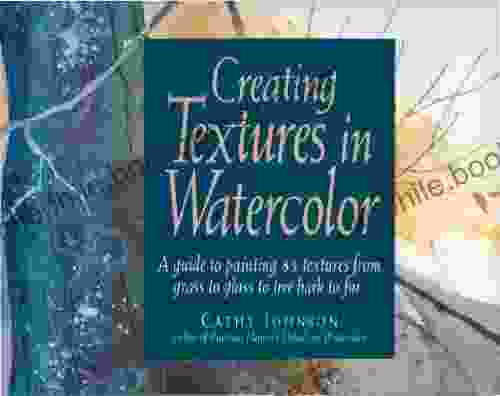
 Jeff FosterThe Ultimate Guide to Painting 83 Textures: From Grass to Glass to Tree Bark...
Jeff FosterThe Ultimate Guide to Painting 83 Textures: From Grass to Glass to Tree Bark... Chad PriceFollow ·14.1k
Chad PriceFollow ·14.1k Anthony BurgessFollow ·8.8k
Anthony BurgessFollow ·8.8k Glenn HayesFollow ·17.3k
Glenn HayesFollow ·17.3k Cristian CoxFollow ·6.4k
Cristian CoxFollow ·6.4k Thomas PowellFollow ·2.7k
Thomas PowellFollow ·2.7k Truman CapoteFollow ·18.4k
Truman CapoteFollow ·18.4k Floyd PowellFollow ·16.3k
Floyd PowellFollow ·16.3k Shaun NelsonFollow ·8.1k
Shaun NelsonFollow ·8.1k
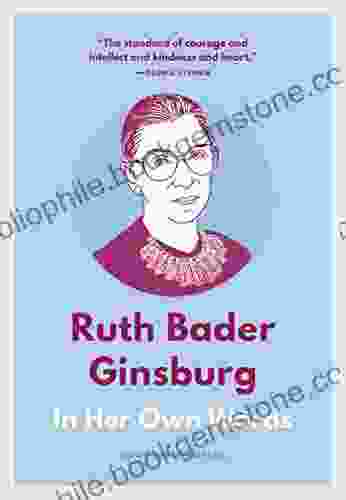
 Scott Parker
Scott ParkerIn Her Own Words, In Their Own Words: A Journey of...
In Her Own Words, In...
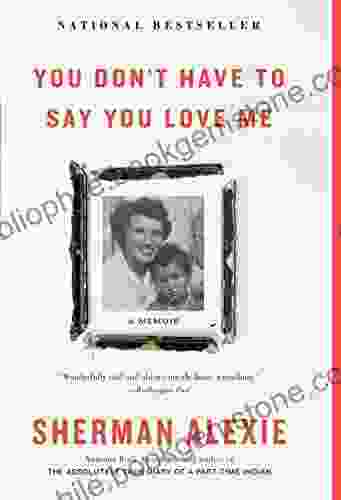
 Colin Richardson
Colin RichardsonYou Don't Have to Say You Love Me: A Lyrical Journey...
In the annals of popular music,...
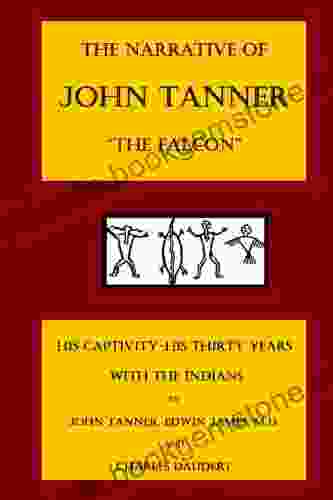
 Clark Campbell
Clark CampbellThe Enthralling Narrative of John Tanner, the Falcon: A...
The Man, the...
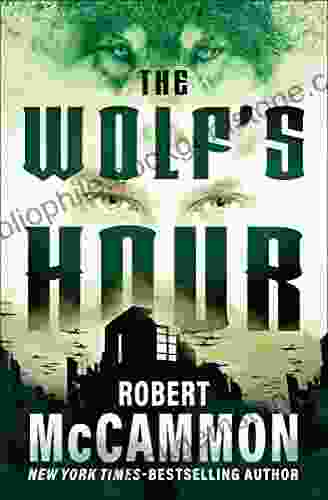
 Glenn Hayes
Glenn HayesThe Wolf Hour: A Spine-Tingling Thriller that Unravels...
Synopsis Prepare...

 Thomas Mann
Thomas MannThe Pirate Tribulation: A Literary Masterpiece Exploring...
Setting Sail into the...
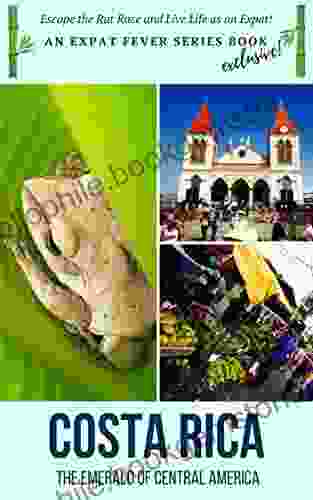
 Eugene Powell
Eugene PowellEscape The Rat Race And Live Life As An Expat
How to find a job abroad If you're...
5 out of 5
| Language | : | English |
| File size | : | 1526 KB |
| Text-to-Speech | : | Enabled |
| Screen Reader | : | Supported |
| Enhanced typesetting | : | Enabled |
| Word Wise | : | Enabled |
| Print length | : | 210 pages |


